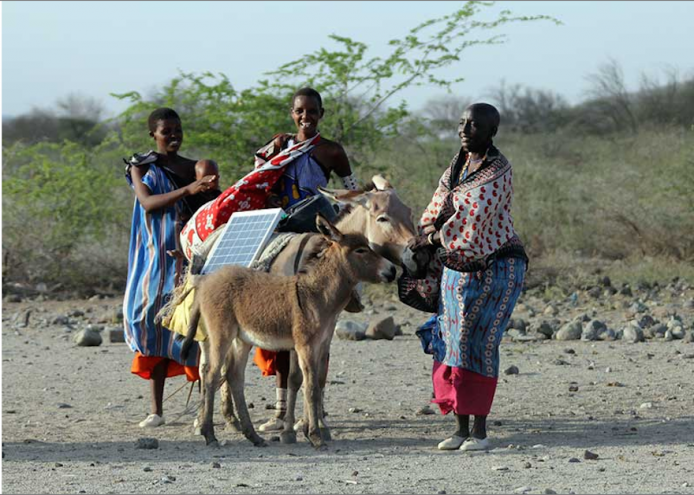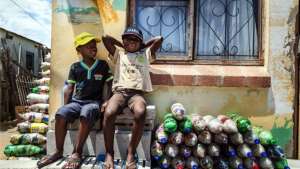Green Energy Africa has initiated the Women Entrepreneurship in Renewable Energy Project (WEREP), a project that sees Maasai women joining solar-energy collectives. The women purchase energy-efficient lights, solar panels, and rechargeable batteries from Green Energy Africa at a discounted rate and then transport them by donkey across villages and sell them for a 300 Kenyan Shillings (around $3) profit.
Green Energy Africa also trains the women to install the solar panels and lights into individual homes. Green Energy Africa reports that only 23 per cent of Kenyans have access to the national electricity grid, provided by Kenya Power, while only five per cent of rural communities are connected.
Transporting solar devices on donkeys from village to village means that the women are transforming the rural landscape with light and power and paving themselves a path to economic freedom.
Kenya has great untapped solar potential and their renewable energy sector is set for a boost in September when a solar micro grid company, Powerhive East Africa, will begin to sell power to the public, ending a half-century monopoly by the state electricity firm. Solar energy is the optimal energy source for the nomadic-pastoral Maasai tribe because of its low-cost, modular installation system that can be sized to fit any needs from domestic lights to households and businesses to an entire village.
Another Maasai Richard Turere, 15, who grew up arpund Nairobi National Park found a way to harness solar energy to solve his village’s needs. He built the Lion Light, an automated solar-powered lighting system of four or five torch bulbs that he installed around the cattle stockade to scare lions from the Park off, decreasing the number of cattle his family lost. So far, Turere has strung up around 75 Lion Light systems around rural Kenya.
Increasingly, Africans will opt for renewable energy sources to solve dilemmas whenever they can. African designers such as Evans Wandongo and his MwangaBora solar lamp and Sudha Kheterpal and her SPARK percussion lamp have developed renewable-energy oriented solutions for the continents dilemmas. And Grammy award winning R&B and hip hop artist Akon is set to open a solar research in Bamako, Mali, for young Africans.
To date, 200 women are participating in the WEREP project across five village groups and together; they’ve installed solar-powered units in more than 2,000 homes.









